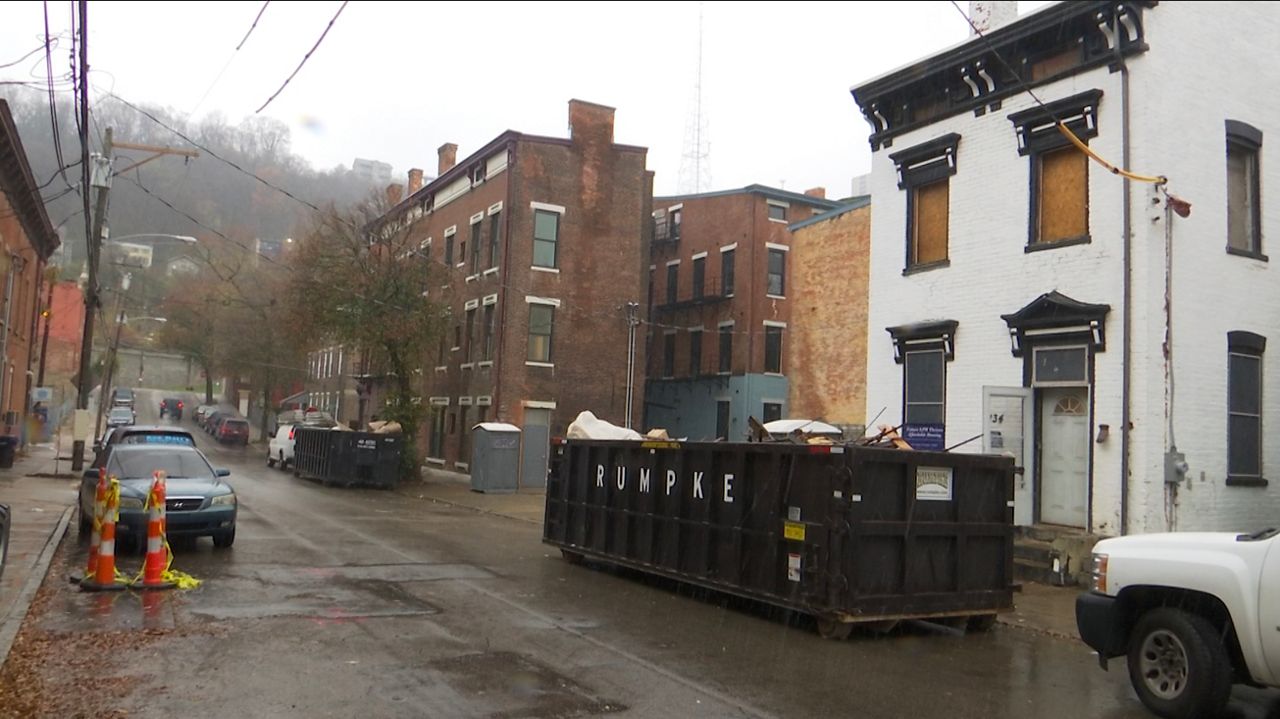CINCINNATI – On St. Michael St., in Lower Price Hill, a transformation is underway. After two years of construction, crumbling facades, vacant buildings, and boarded windows have been replaced with vibrant colors, renovated interiors, and soon, new occupants.
It’s part of the Lower Price Hill Thrives project, a promise to convert 10 vacant properties and build one new structure to create 47 new affordable units and three retail spaces. Community Matters, a neighborhood-based nonprofit, spent the past seven years working to get the $15.4 million project off the ground.
Mary Delaney, the executive director said the group works to improve the area’s quality of life without pushing its members out.
“We build around people,” she said. “We build around the ideas and assets and the needs that people have and you can build a community from within.”
Delaney said the LPH Thrives affordable housing initiative started back in 2015. The Community Matters campus renovation was wrapping up, and she said the nonprofit reached out to neighbors to see what they’d like to see next in their community.
At the time, the neighborhood’s aging housing stock was nearly 50% vacant and uninhabitable.

“There’s been some neighbors who’ve been here for a really long time and they had seen the buildings occupied 30 years ago,” Delaney said. “If we were to lose these buildings, it would completely destroy the whole community.”
LPH Thrives set out to keep those buildings alive while ensuring those who live in the neighborhood could afford to live in them. Many Lower Price Hill residents are rent-burdened, meaning they dedicate more than half their income to rent.
The project eventually got the green light in 2020 when, after a city grant and Low-income Housing Tax Credits, it secured the funding it needed to break ground the following spring.
“It was a complete gut rehab,” Delaney said. “So took these buildings down to the studs, actually had to rebuild a lot of the brick walls, and completely rebuild it from the inside out.”
Supply chain bottlenecks meant the project was slightly delayed, but come December, Delaney said its first tenants should be moving in.
“When I first walked in this property many years ago, it was all boarded up, completely, just destroyed in a lot of ways so to see it actually look like a home is incredible,” she said.
All the LPH Thrives units will be reserved for tenants, making less than 60% of the area median income. Delaney expects all the projects to be completed and occupied by the end of 2023.



